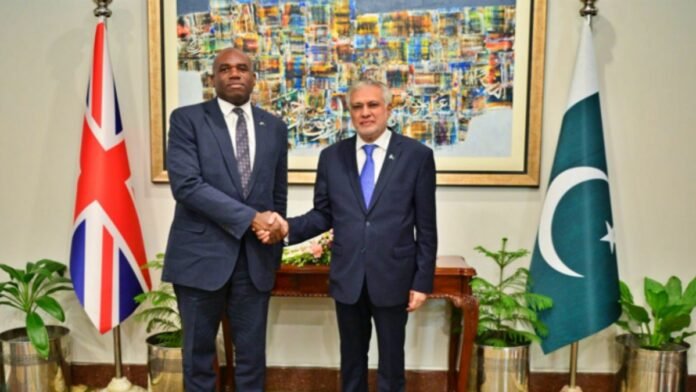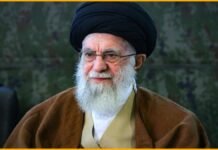
Key Points
- UK Foreign Secretary David Lammy visits Islamabad, marking the first such visit since 2021.
- Lammy stresses Britain’s commitment to turning the fragile India-Pakistan ceasefire into lasting peace.
- The visit follows India’s “Operation Sindoor” and the deadly Pahalgam terror attack, which killed 26.
- Lammy holds talks with Prime Minister Shehbaz Sharif and Foreign Minister Ishaq Dar.
- UK reaffirms condemnation of terrorism and highlights the importance of regional stability for millions with ties to both countries.
Islamabad/London: British Foreign Secretary David Lammy arrived in Islamabad on Friday, embarking on a high-stakes diplomatic mission aimed at reinforcing the UK’s commitment to stability in South Asia. Lammy’s visit is the first by a British foreign minister to Pakistan since 2021 and comes at a critical juncture, just weeks after India’s “Operation Sindoor” targeted terrorist bases in Pakistan in response to the devastating Pahalgam terror attack.
Background: Rising Tensions and a Fragile Ceasefire
The Pahalgam terror attack on April 22 claimed 26 lives and reignited tensions between India and Pakistan. In its aftermath, India launched “Operation Sindoor” against alleged terrorist hideouts in Pakistan. The violence threatened to unravel the already delicate peace along the Line of Control, prompting urgent calls for restraint from the international community.
Britain, a longstanding friend of both nations, quickly condemned the Pahalgam attack. According to the UK’s Foreign, Commonwealth and Development Office (FCDO), Lammy’s visit is designed to “emphasize the importance of continued stability for the region” and to support efforts to turn the current military ceasefire into a foundation for enduring peace.
Lammy’s Message: Support for Peace, Condemnation of Terrorism
Speaking in Islamabad, Lammy said,
“The images of conflict between India and Pakistan were deeply disturbing for all of us in the UK, especially for the millions of British citizens of Indian and Pakistani origin, and for many British citizens living in both these countries. Since the terrible terrorist attack in Pahalgam, Britain has done everything possible to play a supportive role in reducing tensions, achieving a military ceasefire, and condemning terrorism.”
He welcomed the agreement between India and Pakistan to halt hostilities, describing it as a positive step. Lammy highlighted the “deep and historic ties” between the UK and both South Asian nations, noting Britain’s commitment to combating terrorism and supporting peace.
High-Level Talks in Islamabad
During his visit, Lammy held in-depth discussions with Prime Minister Shehbaz Sharif and Foreign Minister Ishaq Dar. The talks focused on recent developments in South Asia, particularly the fragile ceasefire between India and Pakistan.
According to the FCDO, Lammy praised the efforts of both governments to de-escalate tensions and acknowledged the anxiety experienced by people in India, Pakistan, and the UK’s large South Asian diaspora.
A statement from Pakistan’s Foreign Office confirmed that Lammy and Dar exchanged views on the path forward for regional peace. Dar expressed appreciation for the UK’s constructive engagement and its role in promoting dialogue and stability.
The Road Ahead: UK’s Role in Regional Stability
As tensions simmer, Lammy’s visit signals the UK’s intention to remain actively involved in South Asian diplomacy. With millions of British citizens tracing their roots to India and Pakistan, the stakes for peace are high-not just for the region, but for communities in Britain as well.
Lammy’s diplomatic outreach underscores the UK’s hope that the current ceasefire will serve as a stepping stone towards a more durable and peaceful future for India, Pakistan, and the wider region.





















































